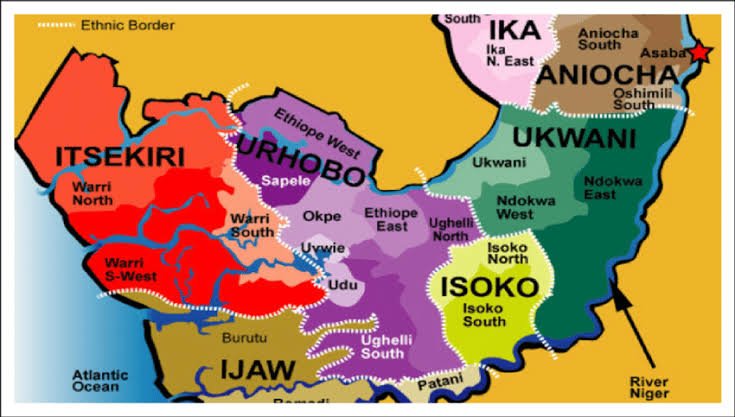There is palpable tension mounting in Delta State following fresh accusations that the state government is deliberately attempting to frustrate the ongoing court case on the alleged marginalization of the Isoko people.
The case, which came up for hearing on Thursday, October 23, 2025, at the High Court in Oleh, has drawn public attention due to claims of procedural delay and questionable legal tactics allegedly employed by state officials.
According to the plaintiff, Bar Tony Ejumejuwo, who gave an update to The Trumpet Newspaper, the matter is a time-bound litigation linked to the state’s annual budget cycle, meaning that it must be concluded within the fiscal year, between January and December. However, the process has faced several setbacks since its filing on July 28, just before the judges embarked on their annual vacation.
Ejumejuwo commended the swift response from the office of Senior Advocate of Nigeria (SAN) Asala, who represents the Delta State House of Assembly, noting that his reply came in under the required 30 days. But things took a dramatic turn when the office of the Attorney-General of Delta State, led by Ekemejero Ohworiole, SAN, allegedly filed its response late, just three days before the scheduled hearing.
The filing was accompanied by an application seeking an extension of time; a move the plaintiff described as a “deliberate attempt to delay the case until it becomes irrelevant.” The statement further criticized the Attorney-General’s action as “one of the cheapest tricks to frustrate justice,” accusing him of undermining the integrity of his office.
Read also:
- Collapsed Church building: Delta State Government receives panel report, vows to uphold justice for victims
- Oborevwori suspends Rector, Bursar of Delta State Polytechnic, Ogwashi-Uku over misconduct
- Police arrest suspect over murder of okada rider in Delta
The plaintiff also expressed disappointment in Asala, SAN, for failing to appear in court or send a representative, suggesting a coordinated effort to push the hearing beyond the current budget year. Had that happened, the case would have lost its legal significance by early 2026.
The presiding judge, however, appeared to recognize the ploy and adjourned the case to November 18, 2025, an outcome viewed as a small victory for the Isoko people, whose interest groups have been following the matter closely.
Ejumejuwo concluded with a strong rebuke of both senior lawyers involved, calling for the Delta State House of Assembly to debrief its counsel and recover professional fees already paid. The plaintiff also urged the government to ensure accountability and fairness in handling matters that affect marginalized communities.
The court’s next sitting on November 18 is expected to determine the direction of the case, which continues to highlight rising concerns over governance, equity, and justice in Delta State.






